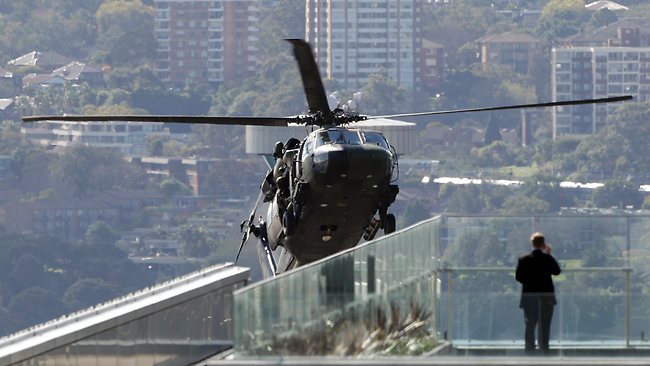How real is the risk of terrorism to Australian businesses?

If we take a broad look at the trends that have shaped Australia, many will have originated from overseas. This can apply to nearly every facet of our daily lives – from how and where we shop, to the music we listen to and the clothes we wear. Even many of our manufacturing and business processes have been influenced by overseas trends.
So it is only reasonable to assume that from a crime perspective, we can anticipate what topics and issues will be visiting our shores by looking abroad.
Right now, it’s terrorism.
Currently, the Australian government is taking either a proactive or an alarmist approach depending on which side of the political fence you sit on.
While I don’t have strong political views, I do agree that a more proactive approach to the risk of terrorism is required.
We know that international criminal trends in replicated Australia, so why would terrorism be any different?
Gas attacks and the fitting of skimming devices to ATM’s, organised crime and many other criminal activities have had proven successful models implemented internationally before they were a hit down under.
It has been well documented that the skimming of local ATM’s has been undertaken by international crime groups, who would fly people in to Australia specifically for these activities.
The perception to date has been that Australia is somewhat removed from the terror activities that occur overseas because of our geographic location. However, if a 15-hour plane flight hasn’t stopped certain criminal trends in the past, why do we expect it will today in relation to terrorist activities?
Everything that is required to undertake a terrorist attack in Australia can be sourced locally – all that is required is the motivated participant(s).
Foreign Minister Julie Bishop in June this year estimated more than 150 Australians have now left our shores to fight with terrorist organisations overseas, up from a reported 70 in November 2014. That’s a staggering increase in just 8 months.
The logical assumption would be that they are travelling overseas and pose no threat to Australians. However, what if 5, 10 or more of these motivated individuals heed the call to take up the fight locally?
In a report published in The Australian on August 14, Julie Bishop was again quoted as saying “I am deeply concerned that Australians are being trained by ISIL to conduct attacks against the West or to encourage people within our communities to engage in terrorist activity”.
Already this year we have seen arrests by state and federal Police forces of individuals who have been accused of planning terrorist activities on Australian soil. One of the most publicised arrests was over a planned ANZAC day attack by two youths in Melbourne.
Whilst it is not my intention to be alarmist, we do need to make the business world aware that the risk of terrorism on Australian soil is real. All the indicators suggest that sooner or later Australians are going to experience an incident of the type and severity we see regularly on the nightly news.
So what do we need to do?
The first thing is to accept that the local environment has changed.
We need to understand that the greatest risk to business is no longer associated with petty theft, graffiti and other forms of anti-social behaviour. These sorts of events while frustrating, are unlikely to have any long term or profound impact on a business. Terrorist events on the other hand can cause catastrophic damage to a business that they may never recover from.
Businesses need to be evaluating their risk relative to the current local environment.
What this means is that security practices have to be appropriate to the level of risk the business may be exposed to.
Many businesses will be operating on security procedures and work practices that were appropriate when they were created. For many, this could have been ten or more years ago. That is simply too long.
If you are unsure where the risk to your business is, ask the question. My phone is always on and I would be only too happy to help you understand what you should be doing.
